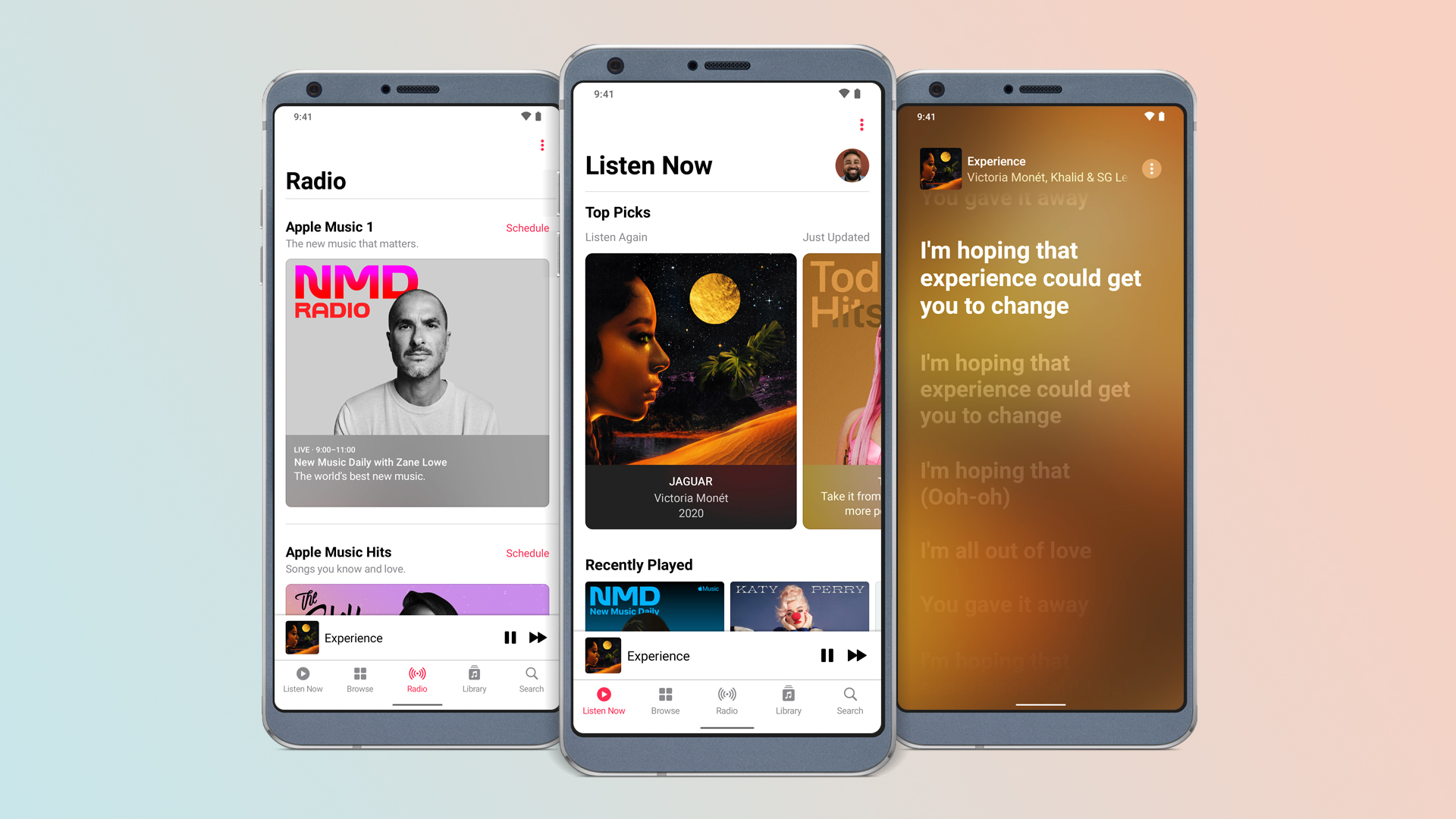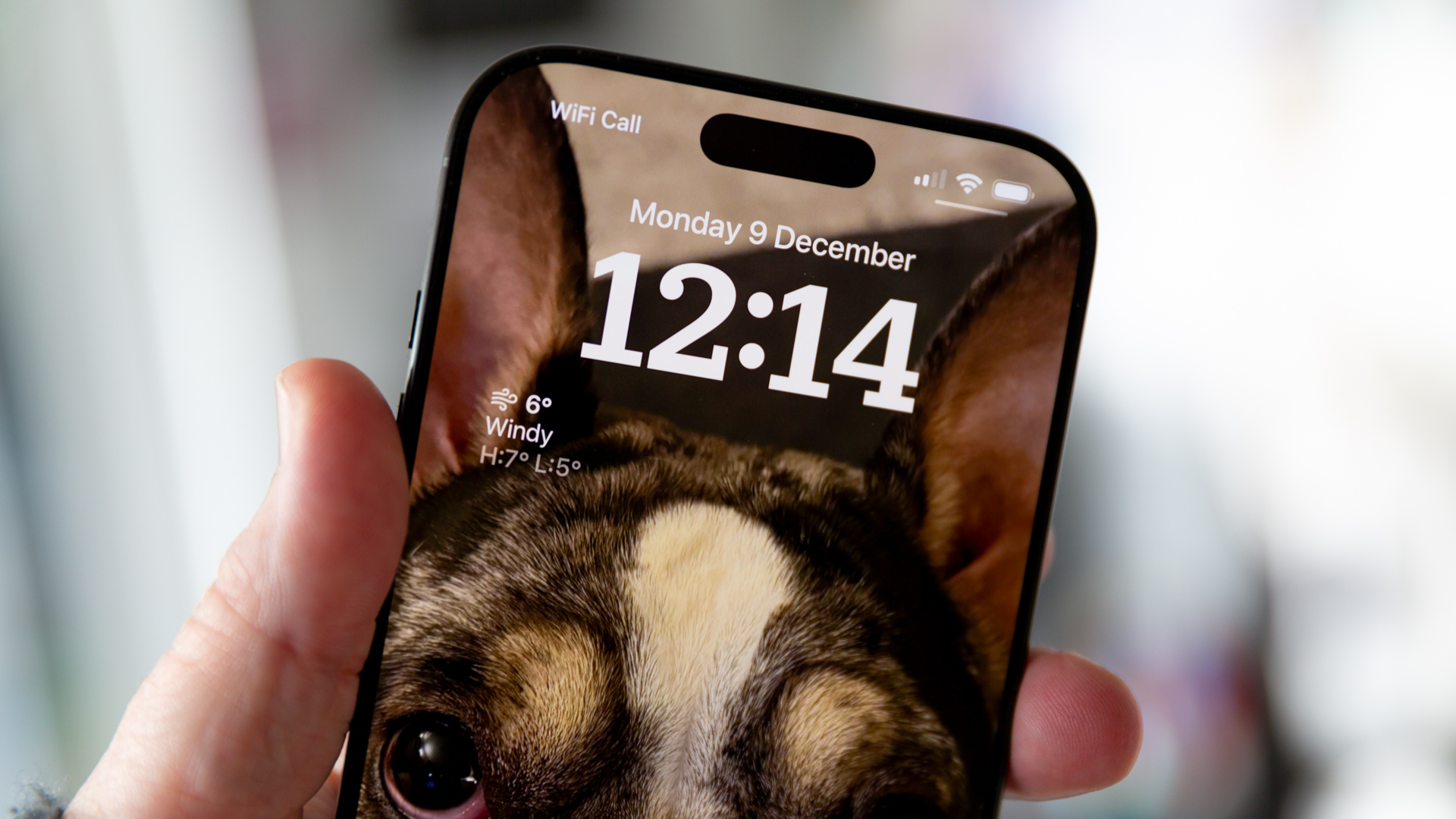

We’re living in strange times. Billionaires are blasting themselves into space. Everybody in England is on fire. And Apple Music is better on Android than it is on iPhone after the latest update. Everybody panic!
Okay, maybe not panic. But it’s really odd for Apple to give Android users something that Apple users don’t get. The main headline upgrades in the latest update to the Android app is the same lossless and Dolby Atmos music support as the iPhone, which is great to see, because we're big converts to Dolby Atmos music.
It can be absolutely amazing experience on the best wireless earbuds and the best noise cancelling headphones – particularly the AirPods Pro and AirPods Max on iPhone, though the Android version won't include the same Spatial Audio feature those headphones get on iOS.
But also, some Android phones actually have big advantages for making the most of lossless playback, because they can include aptX or a good ol'-fashioned 3.5mm jack for the best wired headphones.
But this update also include a feature that the iOS app lacks completely. It’s called Automatic Crossfade and it automatically blends the end of one song into the beginning of another for “a seamless experience”. What the hell!?
Should we be cross about crossfade?
On the Mac, Apple Music has a manual crossfade option and that was carried over to the Android app some time ago: you can set a crossfade time from 1 to 12 seconds, and that applies to every single song. But the new Android app now adds an Automatic option, which analyses the current and next track to work out the best crossfade time.
That should mean that ambient tracks fade gently from one track to the next while faster or more aggressive genres such as hyperpop or heavy rock transition much more quickly.
Sign up to the T3 newsletter for smarter living straight to your inbox
Get all the latest news, reviews, deals and buying guides on gorgeous tech, home and active products from the T3 experts
We’d like to see that on the iOS app too, but we don’t want to stop there. Wouldn’t it be great if Apple could apply its machine learning smarts to playlists and Shuffle mode to take us on a journey rather than just switch from song to song? DJ and beat-matching apps on iOS are already doing amazing things with transitions and AI playlists (check out dJay Pro or Splyce, they’re tons of fun), and Apple’s machine learning platform is very powerful for things like photography. Imagine what it could do to your tunes.
We’d love to see Siri gain some DJ skills, and the Apple ecosystem is packed with all kinds of audio possibilities: imagine if Apple Music could pull data from your iPhone, your Apple Watch, your smart lights and other connected items to work out where you are, what you’re doing and how you’re feeling, automatically creating a suitable soundtrack that pulls from different genres to reflect and maybe even improve your mood or concentration. 20 years after Apple shipped the original iPod, maybe it’s time to reimagine music all over again.
Or, at least, to give iOS users this one cool feature too, dammit!
Writer, musician and broadcaster Carrie Marshall has been covering technology since 1998 and is particularly interested in how tech can help us live our best lives. Her CV is a who’s who of magazines, newspapers, websites and radio programmes ranging from T3, Techradar and MacFormat to the BBC, Sunday Post and People’s Friend. Carrie has written more than a dozen books, ghost-wrote two more and co-wrote seven more books and a Radio 2 documentary series; her memoir, Carrie Kills A Man, was shortlisted for the British Book Awards. When she’s not scribbling, Carrie is the singer in Glaswegian rock band Unquiet Mind (unquietmindmusic).

